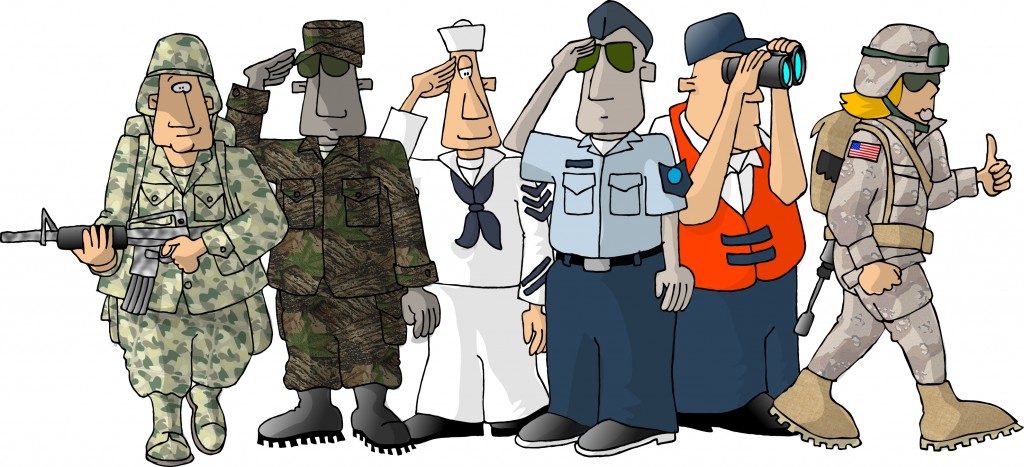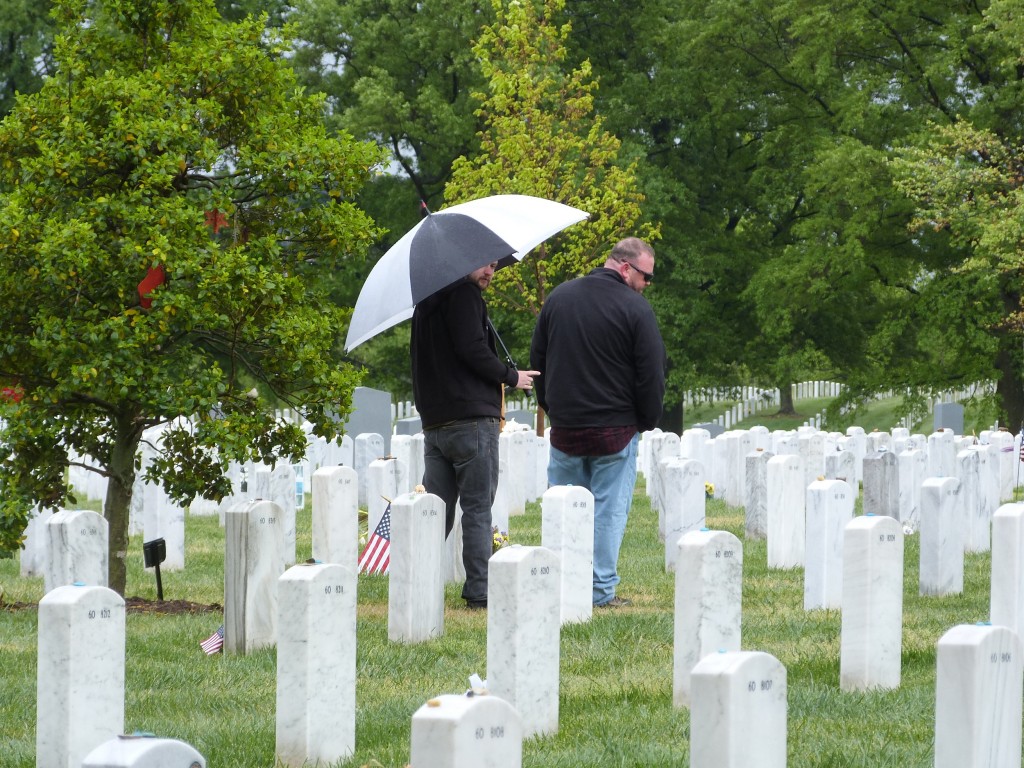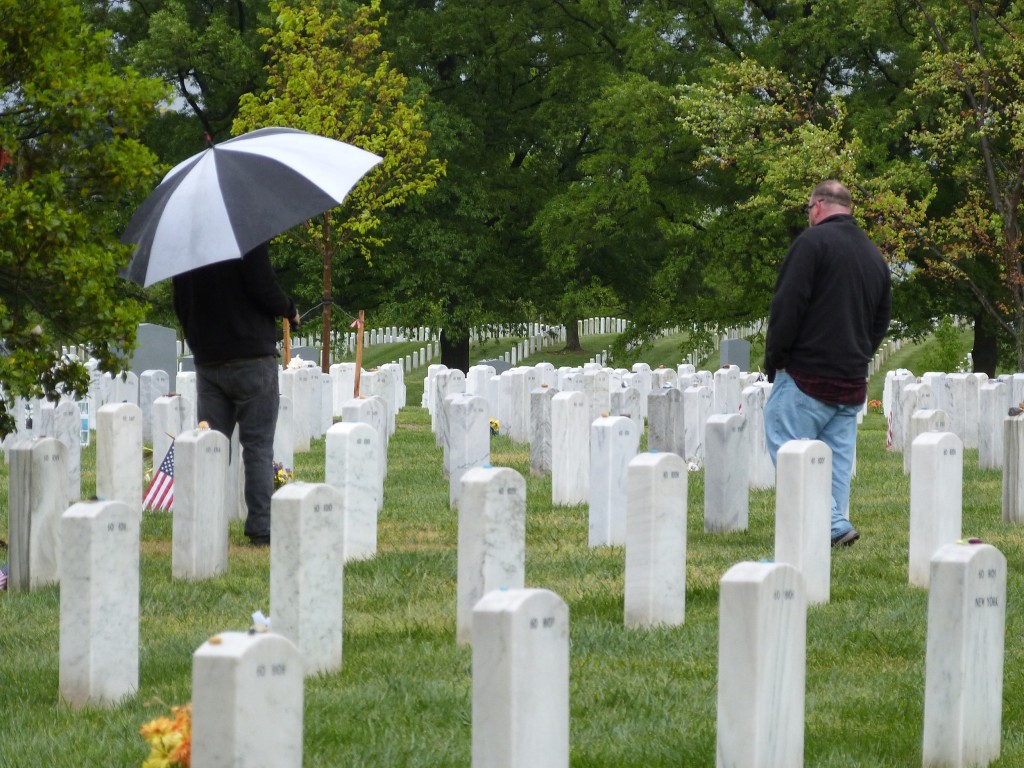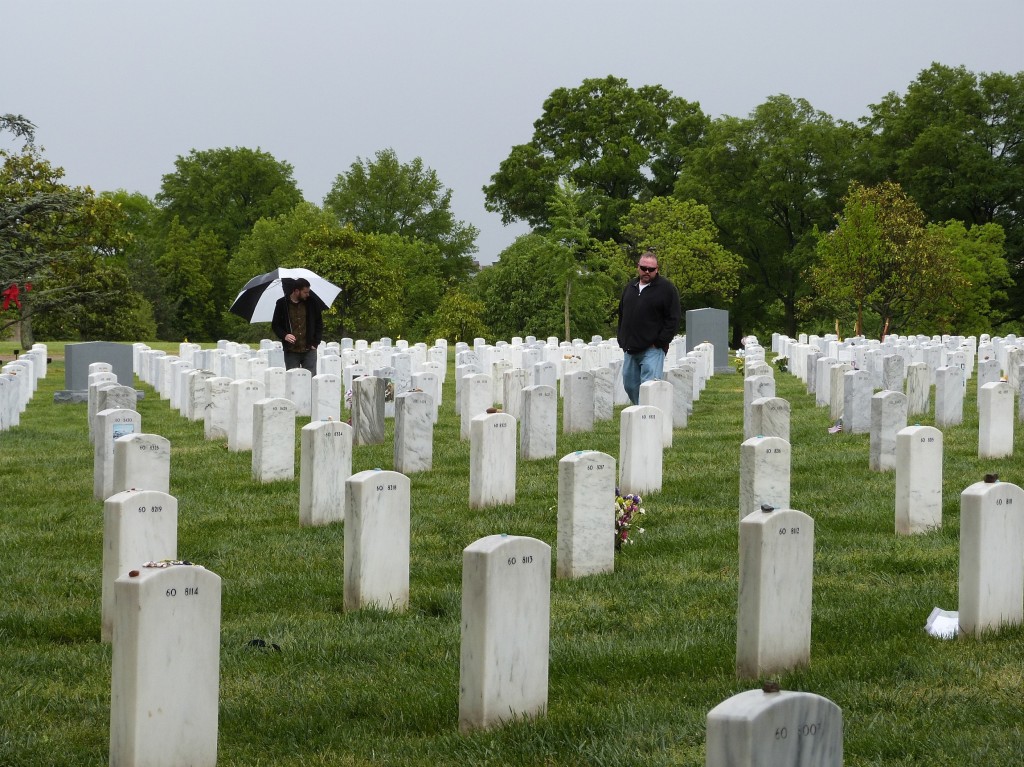
“Blood, blood, blood, makes the green grass grow,” was the mantra we used throughout basic training. Our young boots hitting the pavement, grass, and dirt, each heel giving the cue to yell the cadence “blood,” then again, “blood.”
This wasn’t done to turn us into blood-thirsty sadomasochists (as some would have you believe). It was done to prepare us for the realities of what we were facing. We were a platoon of soldiers, recruits, who had joined the military in 2004. Our country was in the midst of two wars, and we were being prepared to fight, to die, and to take lives. For the soldiers who came before us the question was always, “If we’ll go to war,” but for us, the question was no longer “If,” but “when.” We were being prepared to live, to fight, to kill, and to die for our country. There’s no other way to put it:
“Blood, blood, blood, makes the green grass grow.”
|
“There is no reverse basic training to teach us how to come home.”
|
The problem, though, facing the modern military isn’t with training us to become soldiers and to kill, the problem is with training us to come home. In basic training, a Drill Sergeant’s only job is to turn his soldiers into “Lean, Mean, Fighting-Machines.” And that’s what he does. He’s good at it. It’s why the United States has the most powerful military in the history of the world. But once soldiers fight. Kill. Come close to death.
Then come home. And that’s when the problems begin.
What war and the military does is light a fire in the belly of all who serve. A fire of intensity, for life, for passion, to be part of something greater than themselves. Coming home extinguishes our fire…but embers still burn, and there lies the trouble. In my own unit, since coming home, dozens have gone through drug, alcohol and PTSD clinics, dozens more have gone through divorces, and we’ve lost three to suicide. There is no reverse basic training to teach us how to come home, how to go back to the way we were, how to look at and deal with what we’ve seen and experienced. There’s no way to snuff out the final embers. The only option is to light the fire back up and channel it. It’s why service platoons and charities of veterans giving back to their community have become so popular. Because soldiers come home and they’re depressed, they’re anxious, and for a lot of them, the only thing that helps is giving back to their community. We’ve given until it hurts, and the only answer is to give back some more. It’s the irony of war.
For one soldier, Specialist Timothy Scott, his idea of giving back was to become a vegan (someone who doesn’t eat meat, eggs, dairy, or wear leather products, etc.). SPC Scott—a square-jawed, Flaming-Lips listening, southern boy, who’s an Iraq war veteran and former infantry soldier—was nice enough to sit down for an interview.
What inspired you to become a vegan and how did it relate to your service in Iraq?
“I got into it initially just as a diet. Like, I was having problems after I got back, stressed out, fighting with my girlfriend all the time, and just all kinds of shit was going on. It got pretty bad one night and I knew I needed to do something so I Googled some stuff on anxiety, and stuff about soldiers coming home. I don’t know how it happened, but I knew I needed to do something drastic. I somehow got onto a site about veganism and after a few hours reading things I don’t even know why, it didn’t seem like me, but I decided to give it a try. And I got my girlfriend to agree to do it with me.”
Yeah that’s definitely a drastic jump for someone to make. Did veganism help with anything? How?
“Yeah, it was weird once I got into it. I read the book China Study, and watched some YouTube videos like Earthlings, and, I don’t know, at first it was like this big distraction…”
What do you mean by distraction?
“I dove right into it and it just gave me something to focus on. I wasn’t yelling at my girlfriend anymore — I was suddenly yelling at my TV or the book I was reading. At first I was still… angry and stressed out and anxious, but it was like it just transferred from my girlfriend and family to the meat and farming industry. I guess it wasn’t much better, but it was a start. But that’s the thing. Before, what was stressing me out was reading about the wars in the paper—or the lack of reading about them—and then talking to people back home, and I don’t know…everything was just stressing me out, people’s attitudes just pissed me off. After I got into veganism though I just stopped focusing on the wars and how shitty I thought everyone was. I just focused all my rage on the farming and meat industry. It was like they were the ones who started the wars and who were poisoning us.”
So you were a vegan, and were angry and pissed off, that sounds about right. Then what happened?
“Then, I don’t know, I went to some meetings that I found on Meetups.com, and my girlfriend and I just joined this community. And I saw that people were pissed off and angry about issues but not like me, and then I don’t know. I didn’t notice anything really actually “Happen,” but my girlfriend and I started to become closer again, cooking food together, and bitching about how there’s nothing to buy at the store (but in a more fun light-hearted way) and we started to go to vegan dinners with people from the group…and…I still talked to all my friends but…it was like I was part of a new community. We ate together, talked about the same things, and the wars were still going on and people were still doing dumb shit, but I just stopped thinking about it so much. I feel guilty even saying it, that I stopped thinking about the wars and what was going on, but I needed to. I needed some space, something else to think of. Veganism offered that. Part of me feels like it could have been anything and it just happened to be veganism. But I’m glad it was. I feel healthier now, happier, and I can think about the wars and the military again, but more objectively now that I’ve had some space.”
What about veganism is it that you think helped you deal with your PTSD?
“I mean, it’s just like I said. It gave me something different to focus on. It could have been anything, but that night when I was on the computer it was just veganism that I started reading about. That’s the one thing I’d recommend to other vets. I’m not saying just to become a vegan—do your own research—and I know you’ll feel guilty for not constantly thinking about the wars and your friends, but just give yourself a break. Find something that can take your focus away because space from my thoughts was what I needed so I started thinking about something else. What a person focuses on grows…so just change what you focus on.”
The interview with SPC Scott went on a little bit longer, but the above questions and answers are the gist of the overall tone. And Scott seems to mirror what many self-help “guru’s” will often tell you, “what you focus on grows,” and it’s not to say that veganism is “The Answer,” or even that there is an answer, but what it seems SPC Scott wanted to share was that veganism gave him somewhere different to place his focus. And even though he was still angry and pissed-off, at first, what he did was break his patterns. His mind started to go someplace besides back to the war and all that had happened. Veganism helped change the way he looked at things, the world, his family, his friends, and his experiences.
About this Interview Series: We’ll explore stories from several different veterans—and family members of veterans—and what it is that they’ve done in their lives that has made a drastic impact in helping with their PTSD. Stay tuned for more articles and personal stories/transformations. Mine will be next up in the Series.
***
Full-disclosure: I’m a vegan, too, but for other reasons than Scott.
–Photo: Defence Images/Flickr




 Imagine being away for a long time, in a place that doesn’t even resemble the world you grew up in. It used to be a feather pillow, jeans that fit just right and the smell of fresh cut grass that meant you were home. Now you’ve dedicated yourself to being a soldier, bravely and lovingly protecting the place you call home from thousands of miles away. Hospital corners, camouflaged pants and the smell of smoking guns becomes your new norm. What happens when your tour comes to an end and it’s time to trade in your combat gear for street clothes? Will you be prepared? This life-changing transition of re-integrating into American society has the potential to knock even the most decorated soldier off his or her feet.
Imagine being away for a long time, in a place that doesn’t even resemble the world you grew up in. It used to be a feather pillow, jeans that fit just right and the smell of fresh cut grass that meant you were home. Now you’ve dedicated yourself to being a soldier, bravely and lovingly protecting the place you call home from thousands of miles away. Hospital corners, camouflaged pants and the smell of smoking guns becomes your new norm. What happens when your tour comes to an end and it’s time to trade in your combat gear for street clothes? Will you be prepared? This life-changing transition of re-integrating into American society has the potential to knock even the most decorated soldier off his or her feet. So the statistics just came out and 2012 was the highest year so far in veteran suicides. The number have constantly been going up for the past decade with each subsequent year the new highest year for veteran suicides.
So the statistics just came out and 2012 was the highest year so far in veteran suicides. The number have constantly been going up for the past decade with each subsequent year the new highest year for veteran suicides.



